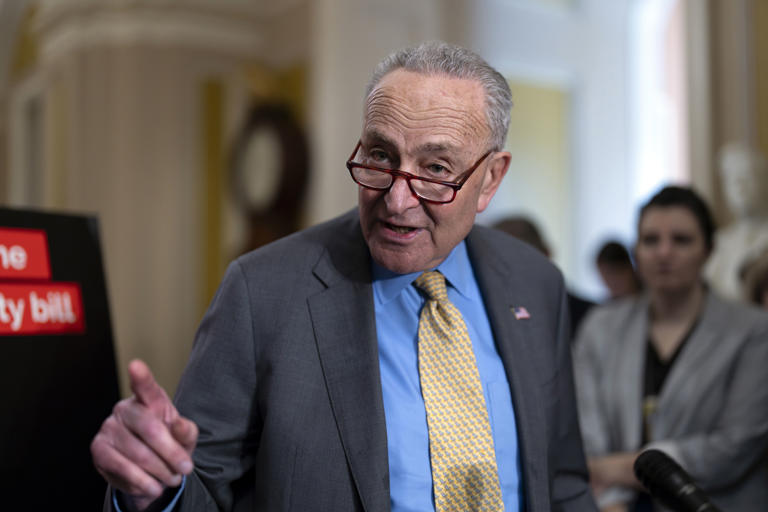“FAA Bill, Air Safety Legislation, Senate Aviation Bill, Air Traffic Control, Airline Refunds, Aviation Safety Standards, Bipartisan Support, FAA Law, Air Travel Improvements, Senate Votes on Aviation”
“Discover how the recent Senate passage of a $105 billion FAA Bill enhances air travel safety and customer service. Learn about the bipartisan effort to boost air traffic controllers, implement new safety technologies, and streamline airline refunds. Read about the significant improvements and legislative challenges faced during the process.”

The U.S. Senate has recently passed a significant $105 billion legislation aimed at enhancing safety and customer service for air travelers. This move comes just a day before the expiration of the existing law governing the Federal Aviation Administration (FAA), underlining the urgency and importance of the bill.
Bipartisan Support Amidst Urgency
The legislation, which received strong bipartisan support, passed with an 88-4 vote. It is designed to address various critical aspects of air travel, including increasing the number of air traffic controllers to counteract current shortages, enhancing safety standards, and simplifying the refund process for travelers affected by delays or cancellations. This comprehensive approach seeks to bolster the overall safety and efficiency of air travel in the U.S.
Addressing Close Calls and Enhancing Safety
Prompted by a series of recent close calls at airports across the nation, the bill also aims to prevent future incidents by increasing the number of safety inspectors at manufacturing facilities and integrating new technology to avoid runway collisions. One notable safety measure in the legislation is the requirement for new airline planes to be equipped with cockpit voice recorders that can store up to 25 hours of audio, a significant upgrade from the current two hours, to aid in future investigations.
Improving Customer Experience
In terms of customer service, the Senate bill mandates airlines to issue refunds for flights delayed longer than three hours domestically and six hours internationally. This amendment simplifies the refund process, shifting the responsibility from the customers to the airlines. Additionally, the bill prohibits extra charges for families wishing to sit together and significantly increases the fines for airlines that violate consumer laws.
The legislation also introduces a new “dashboard” feature, which will allow consumers to compare seat sizes across different airlines, enhancing transparency and helping passengers make more informed decisions.
Enhancing Accessibility
The bill places a strong emphasis on accessibility, requiring airlines to better accommodate passengers with disabilities. This includes improved seating arrangements, training for airline personnel on handling and storing wheelchairs, and grants for upgrading airport accessibility.
Legislative Challenges and Political Maneuvers
The passage of the bill was not without its challenges. Initially stalled due to disagreements over certain provisions, such as the proposal to increase the number of flights at Reagan Washington National Airport, the bill faced opposition from senators concerned about the potential impact on safety and service quality. The contention around this issue reflects the complex balance between regional interests and national safety standards.
Senate Majority Leader Chuck Schumer played a crucial role in navigating these challenges by facilitating negotiations and pushing for timely voting, highlighting the legislative urgency as the FAA law neared expiration.
Conclusion
The successful passage of this FAA bill is a testament to the capability of Congress to unite across party lines to enact legislation critical to the nation’s infrastructure and public safety. The measures outlined in the bill are expected to significantly improve the safety, reliability, and accessibility of air travel in the United States, providing peace of mind for millions of travelers and setting a new standard for the aviation industry. This legislative action represents a proactive approach to addressing both current challenges and future needs of the aviation sector, ensuring that U.S. air travel remains safe, efficient, and customer-oriented.
Read More-